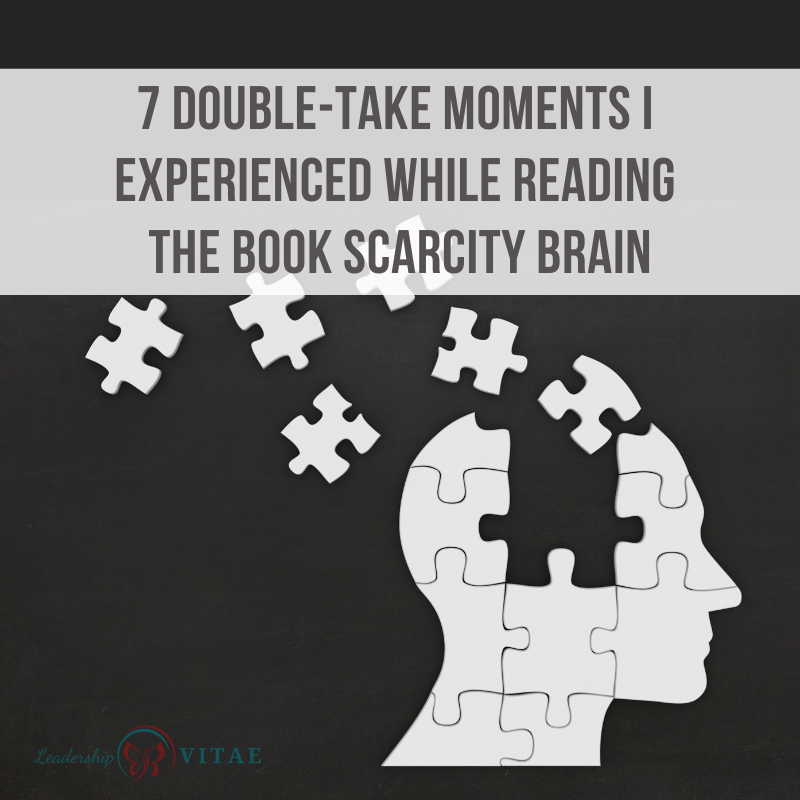
In a world constantly demanding more of our attention, energy, and resources, our brains have developed fascinating mechanisms to cope. These mechanisms, while once evolutionary advantages, can now lead us astray in our modern environment. The book “Scarcity Brain” by Michael Easter illuminates these mental shortcuts and biases with remarkable clarity, offering insights that are simultaneously obvious yet deeply relevant.
As I dove into the book, I found myself nodding along several times. In some cases with that sense of “of course!” and others with “oh no.” These moments of recognition – experiences called out, named, and their impacts so clearly laid out – are powerful catalysts for change. If you haven’t read “Scarcity Brain,” I strongly encourage you to do so. The way our brains can hijack us, and how easily they can be hijacked by external forces like media, technology, and social pressures, is both worrisome and crystal clear once you understand the mechanisms at work.
Let me share seven face-palm moments from the book that were obvious once I read them, but needed the black-and-white reminder to help me reflect on behavior changes I can implement both professionally and personally.
1. Do Less
Humans systematically overlook solutions that do less. We’re told non-stop that more is better, even when doing less is optimal. This week, identify one problem you’re facing and ask: ‘What could I remove instead of add?’ Try solving it by elimination rather than addition – whether it’s simplifying a project scope, declining a meeting, or deleting an app that drains your attention.
2. Hunger Games
Our expectations shape our happiness, and the more we consume, the hungrier we get. Robert Sapolsky noted, ‘An unexpected pleasure yesterday is what we feel entitled to today, and what won’t be enough tomorrow.’ Notice where your consumption treadmill is accelerating, whether with social media, shopping, or achievements. Try implementing a ‘satisfaction pause’ where you fully appreciate what you already have before reaching for more.
3. Overconfidence effect
We overestimate our accuracy, and the more confident we are, the more our accuracy suffers. When we’re 99% certain, we’re wrong 40% of the time. Combat this by pre-committing to what would change your mind before making important decisions. Ask yourself: ‘What evidence would prove me wrong?’ and actually write it down. This simple practice keeps intellectual humility alive when you need it most.
4. False uniqueness bias
We aren’t as unique as we think we are, and our skills aren’t as rare as we believe. While these notions may boost our self-esteem, they can make us overconfident and resistant to delegate or ask for help. Try this: identify one task you’ve been hoarding and deliberately seek collaboration. You’ll likely discover others have valuable perspectives that enhance the outcome AND you’ll reclaim precious mental bandwidth.
5. Naive realism
We think we see reality as it is. We don’t. Our experiences and environment shape our sense of reality. This week, when you find yourself absolutely certain about something, pause and ask: ‘How might someone I respect but disagree with see this differently?’ With new insights or adding someone else’s perspective to our own, we develop a more nuanced and effective understanding.
6. Moving goalposts
The hill we’ll die on today is one we’ll happily cede tomorrow. Before your next heated discussion or stressful decision, ask: ‘Will this matter in the 5/5/5 framework—five days, five months, five years?’ Scale your emotional investment accordingly. Make sure the fight you’re having over the next five minutes or hours will actually matter in the timeframe that counts.
7. The Hero’s Journey
Joseph Campbell said, ‘The cave you fear to enter holds the treasure you seek.’ I’ve always loved the Hero(ine)’s Journey. All personal transformation begins with a willingness to enter the cave we fear. What conversation, project, or change have you been avoiding that makes your heart race just thinking about it? That’s your cave. Schedule one small step toward it this week – the treasure on the other side is worth the discomfort.
Going Beyond Awareness to Action
These seven insights from “Scarcity Brain” are shaping how I view my daily choices and interactions. They’ve revealed the invisible forces guiding my decisions – forces I was largely unaware of until they were named and explained.
What’s most powerful about understanding these mental shortcuts isn’t just recognizing them in action but remembering to pause, reflect, and choose differently. Each time we catch ourselves falling into the trap of doing more when less would suffice, chasing consumption that only makes us hungrier, or being overconfident in our certainty, we create space for intentional choices rather than automatic reactions.
The Challenge Ahead
I invite you to notice these patterns in your own life this week. Which of these seven insights resonates most strongly with you? Where do you see these biases manifesting in your work or relationships? Perhaps try implementing one small change, whether it’s removing something unnecessary from your schedule rather than adding more, questioning your next “I’m 100% certain” moment, or facing a cave you’ve been avoiding.
For me, it’s definitely the cave. There are items on my to-do list that keep shifting week to week. It’s not a lack of skill but will that’s holding me back due to fear. Yet I know that each time I face the thing I fear two things happen. One, it’s never as bad as I worry about and two, the good thing on the other side can now be achieved.
Please share your experiences in the comments below. Which of these insights struck a chord with you? What changes have you tried implementing, and what happened as a result? By learning from each other’s experiments with these concepts, we can collectively develop a stronger awareness of our scarcity-driven tendencies and build habits that serve us better.
Remember, awareness is the first step toward change. Your brain’s hardwiring doesn’t have to be your destiny, but you can’t rewire what you don’t recognize.








